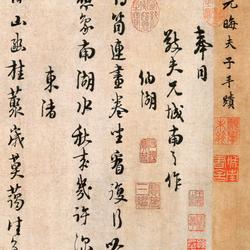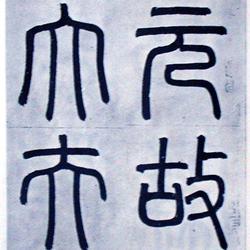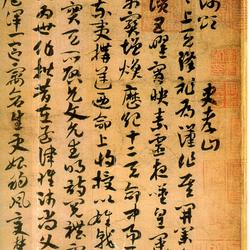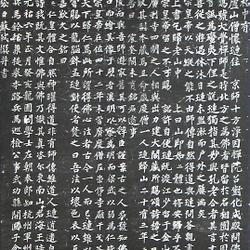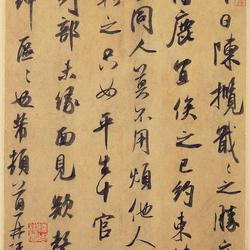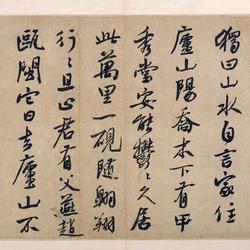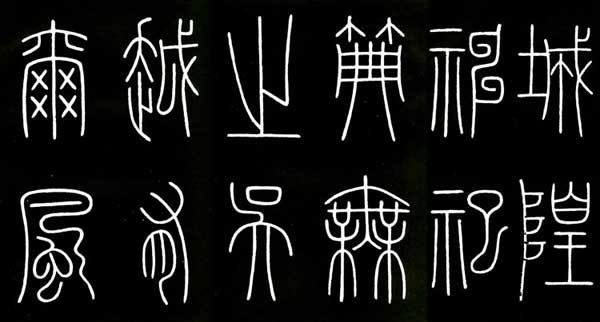
"City God's Temple Stele", also known as "Jinyun County City God's Temple Memorial Stele", was engraved in the second year of Qianyuan of the Tang Dynasty (759). It was written and written by Li Yangbing after praying for rain in response to the prayers of the town god of the county. Seal script with 8 lines and 16 characters in Jinyun County, Zhejiang Province. Fangla rebelled during the reign of Xuanhe in Song Dynasty. The stone tablets were broken and the writing was incomplete within the reach of weapons. It is now dated to October 1123, the fifth year of Xuanhe's reign in the Song Dynasty. Wu Yannian, the magistrate of Jinyun County, reengraved the stone according to the rubbings. It is quite well preserved, but the name of the person who set up the stone below the inscription is missing three characters. The calligraphy on this stele is thin, vigorous and spiritual, with a central stroke and a graceful and free structure. It is different from other stele calligraphy. There is an engraving version handed down to the world.
Ouyang Xiu recorded in "Collection of Ancient Records" that Li Yangbing, the emperor of the Tang Dynasty, wrote the "Chenghuang Shenji" carved on stone in seals: After taking charge of Jinyun County, he took advantage of the incense to go to the temple to find the stone tablet and rubbed it again and again. , recite it four times. The top of the stele is rounded and the bottom is round. It is five feet three inches high and three feet five inches wide. It has eight lines of seal script, each line has eleven characters, and the last line has nine characters. The font is long and thin, less than three inches high and more than two inches wide. The article says: "There is no sacrificial code for the city god, but it is found in Wu and Yue. It is a custom to pray for floods, droughts, and epidemics. In the autumn of the second year of Qianyuan of the Tang Dynasty, there was no rain in July, and it rained in August. Li Yangbing, the magistrate of Jinyun County, prayed to the god and communicated with the god. It was said: If there is no rain for five days, the temple will be burned down. When heavy rain comes, the situation will be over. Officials and senior officials moved the temple from the west valley to the top of the mountain to answer the question of God's rest." There are only eighty-six words. , describing the two major events of praying for rain and moving the temple, the words are simple but the meaning is clear.

